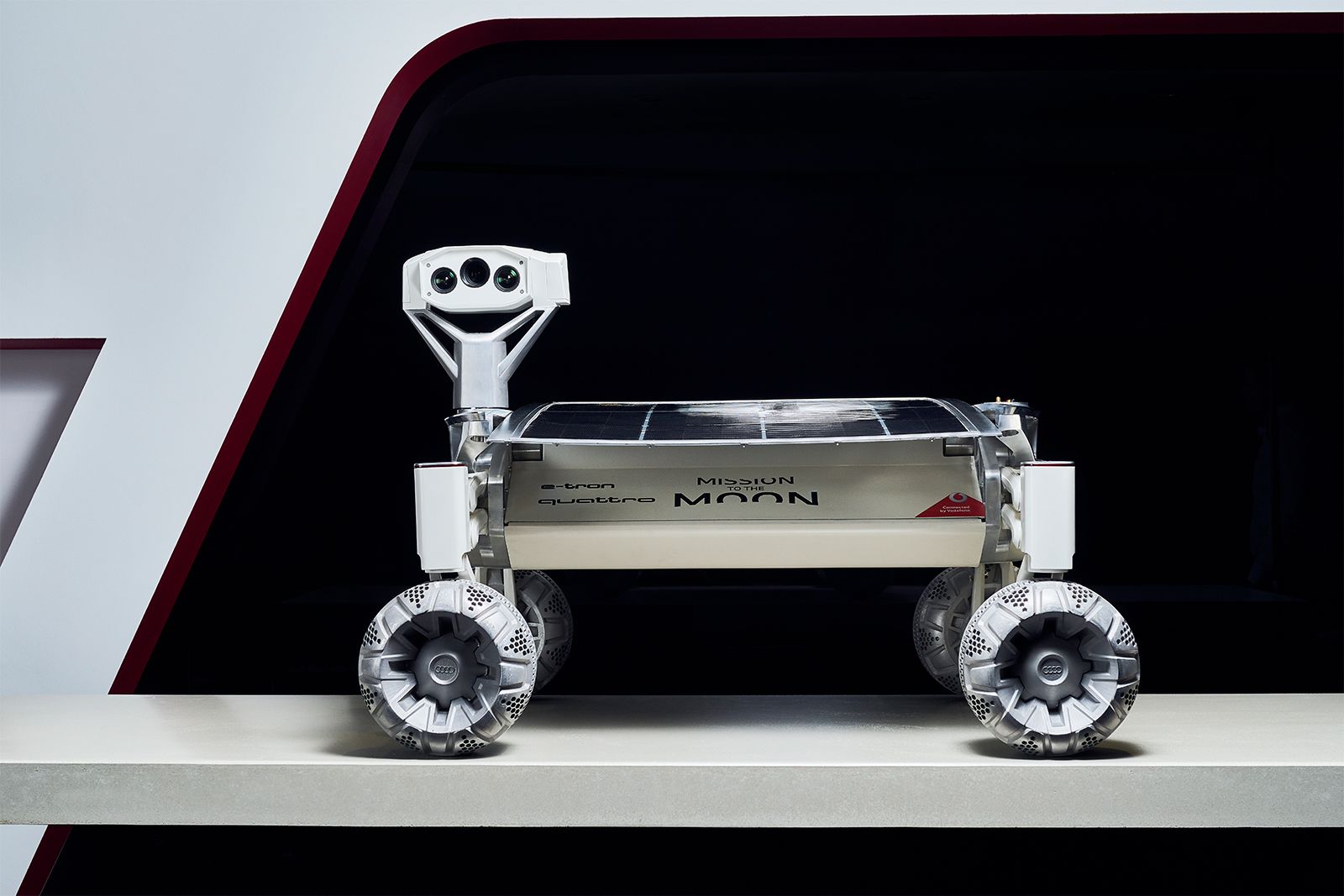There are still a few areas of the UK that are considered 'blackspots', getting very minimal mobile signal, let alone 4G data. That hasn't stopped German-based PTScientists from working with Vodafone Germany, Audi and Nokia on the first privately funded lunar mission to install a 4G network on the moon.
The mission, due to launch next year from Cape Canaveral, will see a SpaceX Falcon 9 rocket transport two Audi lunar rovers, which will use the network - installed by Vodafone - to not only communicate with each other, but to transmit the first live HD feed of the moon's surface back to Earth and to PTScientists' server in Berlin.
The 4G network won't be the exact same as the one we're used to here on Earth, so future astronauts won't be able to travel to the moon and upload pictures to Instagram, but it will broadcast a 4G signal over the 1800MHz frequency band.
Robert Böhme, CEO and Founder of PTScientists, said: "This is a crucial first step for sustainable exploration of the solar system. In order for humanity to leave the cradle of Earth, we need to develop infrastructures beyond our home planet."
"With Mission to the Moon we will establish and test the first elements of a dedicated communications network on the Moon. The great thing about this LTE solution is that it saves so much power, and the less energy we use sending data, the more we have to do science!"
With the Moon now getting its own dedicated 4G network, perhaps it's time we complained a little more to mobile networks in the UK to eliminate those blackspots.

